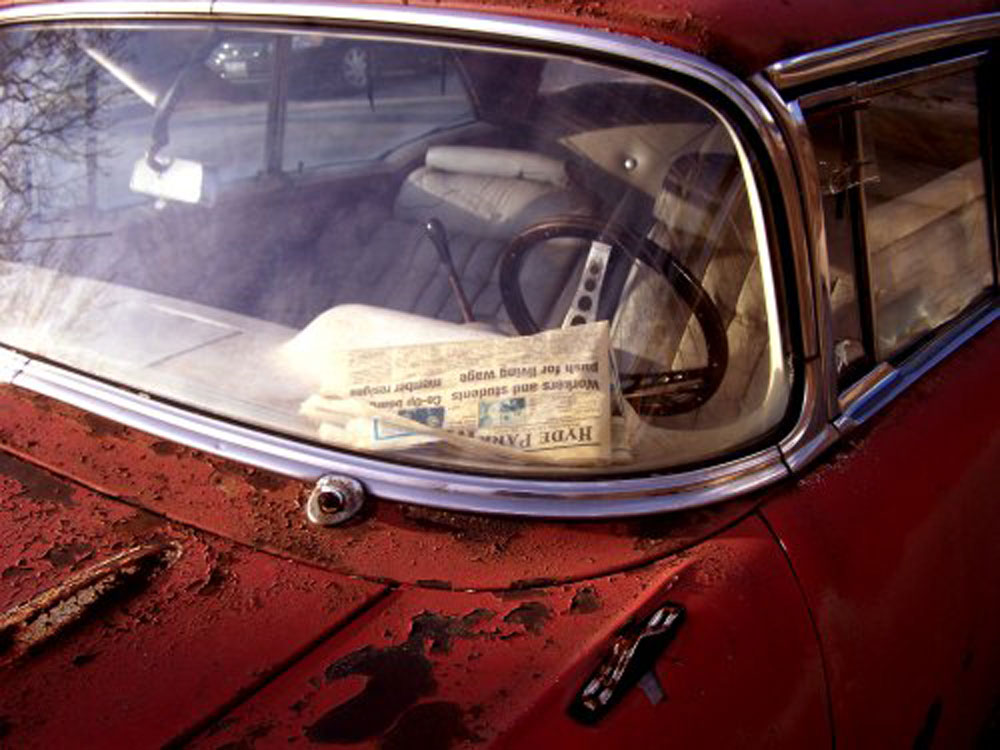
For nearly 139 years, the Hyde Park Herald on the South Side of Chicago, which publishes weekly, has operated as a for-profit newspaper. Now, writes Ally Marotti in Crain’s Chicago Business, the news operation is seeking to become a nonprofit. Already, the paper has started to solicit donations to make ends meet.
The paper’s donation page reads, “The Hyde Park Herald has supplied local news to the South Side community for 138 years. Today, local newspapers everywhere face the economic challenge of supporting its staff and providing timely and relevant information to its residents. We ask, if you’re able, to help support the Herald with a one-time or recurring donation.” Since the conversion has not occurred yet, the Herald’s page also very carefully notes that it is not presently a charitable organization and that donations are not tax deductible.
As Marotti notes, in seeking to convert from a for-profit firm to a nonprofit, the Herald is following a growing trend. In 2019, NPQ covered Utah’s Salt Lake Tribune as the Salt Lake City daily became a test case for the Internal Revenue Service (IRS). Many years ago, it was pretty much assumed that newspapers had to be for-profit entities. This notion began to be eroded, due in part to the rise of nonprofit journalism entities but also due to two large dailies that were for-profit papers owned by nonprofits—namely, the Tampa Bay Times (formerly the St. Petersburg Times, owned by the nonprofit Poynter Institute), and then, beginning in 2016, the Philadelphia Inquirer, owned by the nonprofit Lenfest Institute.
But the Tribune took this further by seeking to have the IRS recognize the newspaper itself as a valid charitable purpose. Some were skeptical that the IRS would go along. Here at NPQ, we were more optimistic, mainly because the public value and core civic purpose of nonprofit journalism had become more evident, particularly as local commercial outlets have continued to shed journalists, if not shut down entirely.
To recall, the pace of the demise of commercial media has been astonishing. Advertising revenue, which was $67 billion (in 2014 dollars) in 2000, had fallen to $20 billion by 2014. Between 2004 and 2018, the number of dailies fell 13 percent (1,472 to 1,283) while the number of weeklies like the Herald fell 21.5 percent (7,419 to 5,829). An estimated 161 counties in the US have no local commercial newspaper at all.
By November 2019, the IRS approved the Tribune’s application for 501c3 status, and before the end of that month, we were reporting on another case, this time a much smaller operation in Virginia that was contemplating a similar transition.
Jonathan Kealing, chief networking officer of the Institute for Nonprofit News, tells Marotti that in 2020 six businesses converted from for-profit to nonprofit news, up from two in 2019 and none before then. These include, notes Marotti, “the Evanston RoundTable and Growing Community Media, a nonprofit that includes Wednesday Journal of Oak Park and River Forest, the Austin Weekly News, Forest Park Review and Riverside-Brookfield Landmark.”
Sign up for our free newsletters
Subscribe to NPQ's newsletters to have our top stories delivered directly to your inbox.
By signing up, you agree to our privacy policy and terms of use, and to receive messages from NPQ and our partners.
Another publication to convert to nonprofit ownership is the Chicago Reader. NPQ covered the publication’s announcement of its intention to convert back in November 2019.
Meanwhile, philanthropic funding of nonprofit journalism appears to be rising. Writing for Poynter, Rick Edmonds reports that, “in contrast to the business wipeout for most legacy media last year, big nonprofit local initiatives are thriving and on track for healthy growth this year, too.” Edmonds notes that a growing segment of journalism philanthropy is viewing the nonprofit model as “the better ownership structure and the future of ambitious local news.”
Edmonds adds that readers, too, are beginning to take notice, leading to rising individual donations. As Edmonds puts it, “American media consumers finally seem to be getting the message that their local newspaper is not healthy financially—diminished already and facing a mortal threat before long. Not only are digital subscriptions up, but readers are starting to voluntarily send tax-deductible gifts.”
Of course, conversion to nonprofit ownership is not a panacea. Yes, nonprofit status makes it easier to raise individual donations and foundation support, but nonprofit enterprises still need to at least break even and can fail just like commercial media. Tim Franklin, senior associate dean at Northwestern University’s Medill School of Journalism, warns, “There’s a perception among some that shifting to nonprofit status is a panacea, that it’s going to solve all the problems…[but] this is not a vaccine against insolvency.”
One challenge, as Ruth McCambridge noted in NPQ last year, is that operating a nonprofit publication requires a different mindset than a commercial entity. “Engagement,” she emphasizes, “is seen as the holy grail of nonprofit journalism.” In other words, a cultural shift, not just a shift in economic model, is required for the shift to nonprofit ownership to be successful.
Tracy Baim, publisher of the Chicago Reader, readily acknowledges that nonprofit ownership is no guarantee of success. But she adds that nonprofit ownership for the 50-year-old publication enables the organization to be in greater control of its own future. “Once the nonprofit became a reality, I think there was a sense of relief that this was more our game to win or lose,” Baim says. The Reader applied for nonprofit status in February 2020 and received IRS approval last fall, Baim tells Marotti. A new Reader Institute for Community Journalism was scheduled to launch January 1st and, while its launch is behind schedule, it is expected to assume control over the Reader soon.
As for the Herald, they are just getting started. Jason Schumer, who is publisher of the Herald, notes that the transition is being made easier in large part because the Salt Lake Tribune, Chicago Reader, and others have helped clear the path.—Steve Dubb










